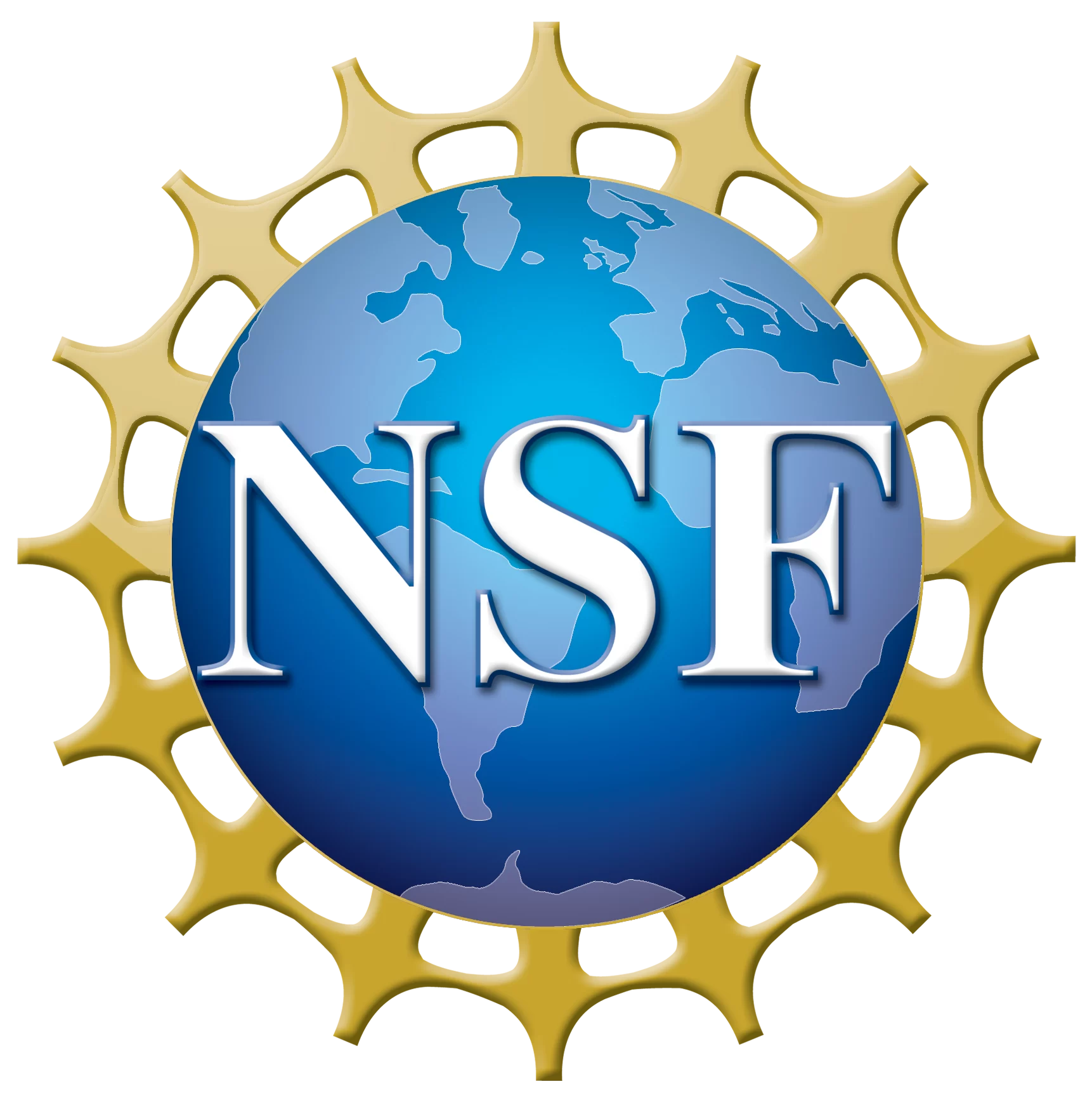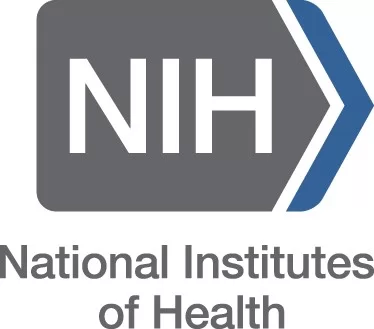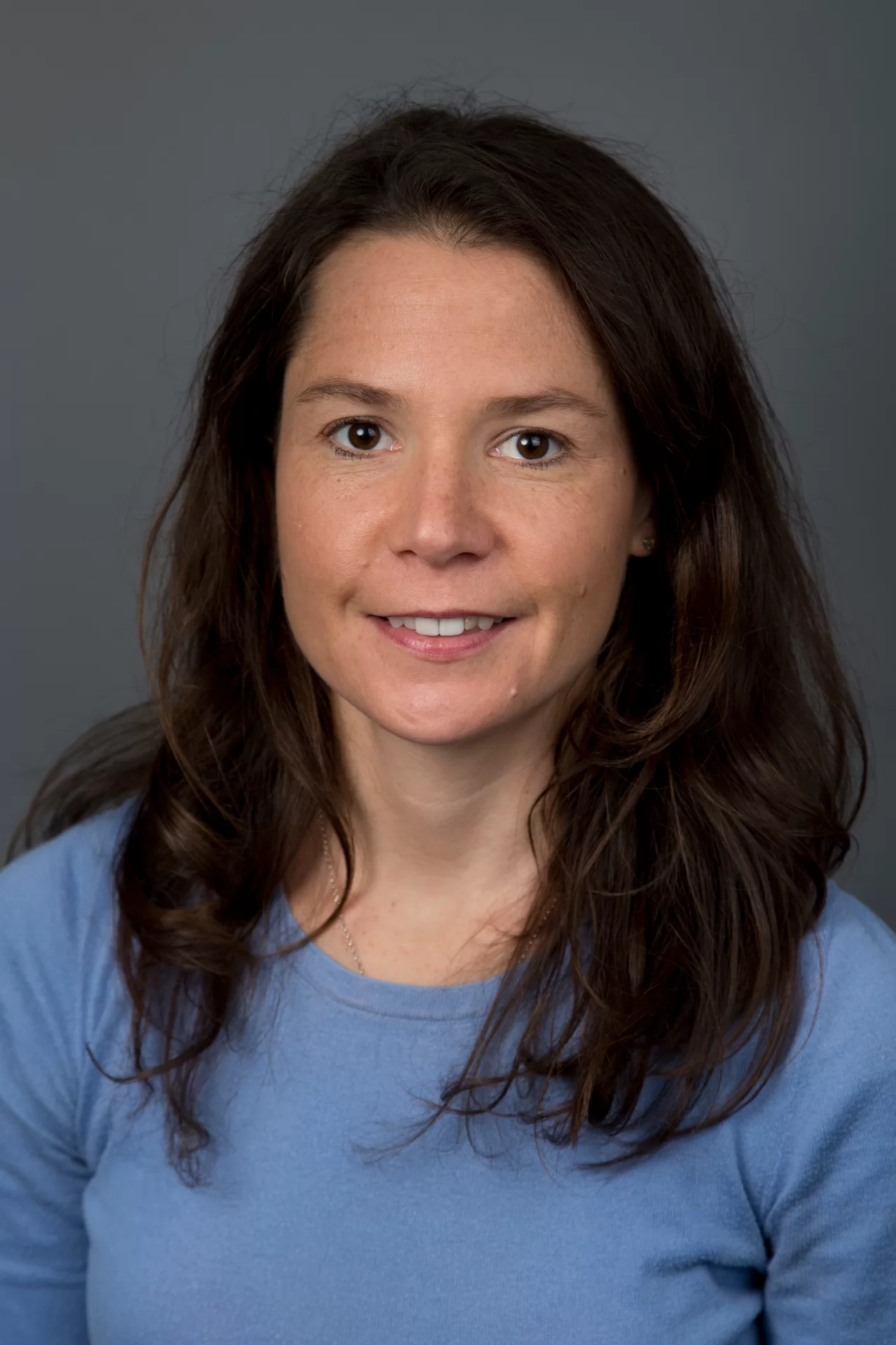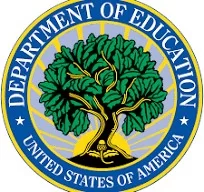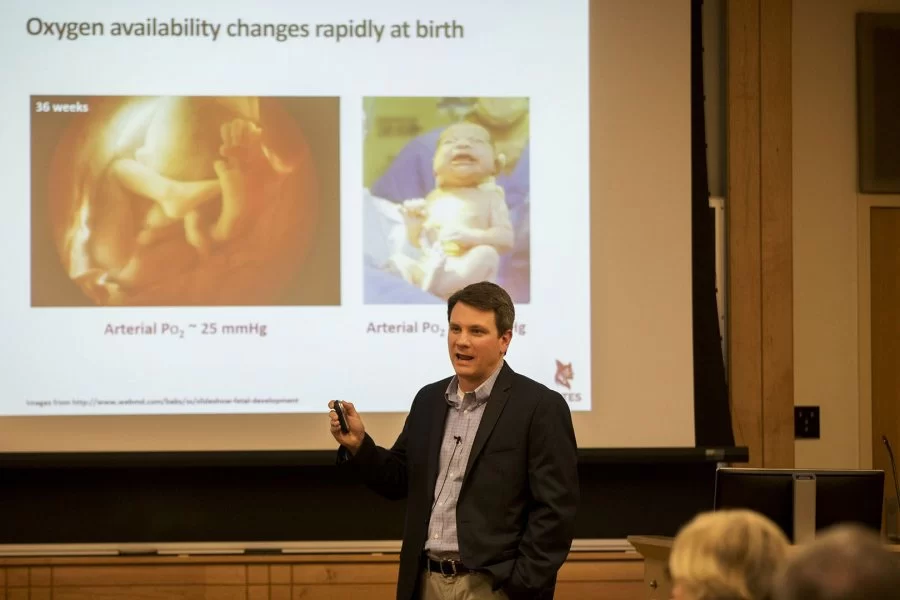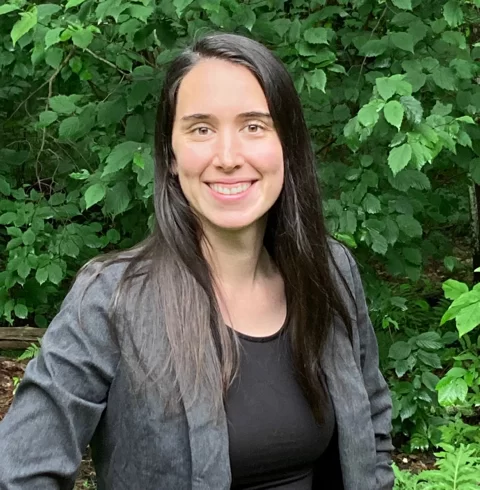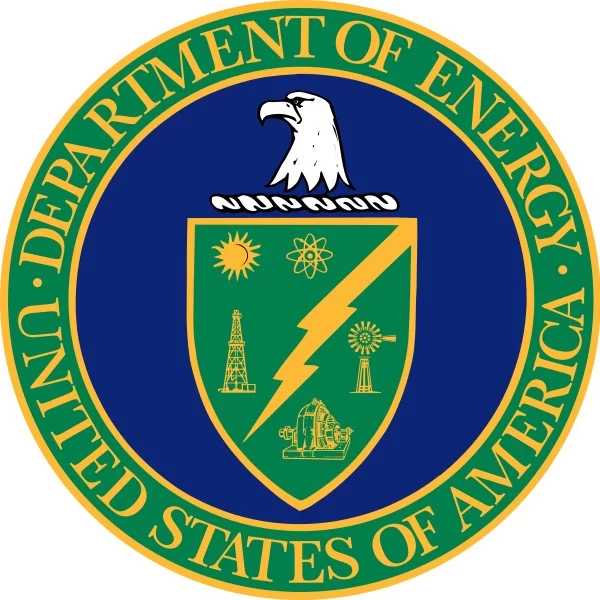Recently Awarded Grants
Congratulations to the following Bates College investigators who have recently been awarded grants! (For a complete list of all awards received by Bates College organized by Funder please visit the Awards to Bates College page.)
- Nick Balascio receives National Science Foundation grant
Associate Professor of Earth and Climate Sciences
Nick Balascio, in collaboration with colleagues at the College of William and Mary, received $22,527 from the National Science Foundation for his project, “Managing Sustainment of Forests and Fisheries.”
This material is based upon work supported by the National Science Foundation under Grant No. 2445367. Any opinions, findings and conclusions or recommendations expressed in this material are those of the author(s) and do not necessarily reflect the views of the National Science Foundation.
- Bates Dance Festival receives National Arts Relief Fund award
The National Arts Relief Fund from Americans for the Arts has awarded the Bates Dance Festival a grant for $17,500 in support of its general operating and programming. If you see BDF Director Shoni Currier on campus, please congratulate her!
- Asha Tamirisa receives LEF Foundation award
Associate Professor of Music
Congratulations to Asha Tamirisa, Associate Professor of Music, who has received funding from the LEF Foundation Moving Image Fund Early Development Grant program! The funding will support the initial stages of a new project, Smoke Gets in Your Eyes, which will be a documentary using wildfire smoke as a material, metaphor, and method to explore attitudes towards climate change.
- Justin Baumann awarded funding from Maine EPSCoR
Assistant Professor of Environmental Studies
Congratulations to Justin Baumann, Assistant Professor of Environmental Studies, who has received funding from the University of Maine‘s National Science Foundation EPSCoR eRISE II program to support his project studying mussel populations in the intertidal zones of the Gulf of Maine. This award will fund genetic sequencing of mussels collected by Bates undergrads over the past summer to identify subpopulations of mussels that may be better able to adapt to changing water temperatures. Collection and analysis of the mussels and sequencing data will be part of the honors theses of two seniors in Justin’s lab this year.
This material is based upon work supported by the National Science Foundation under Grant No. OIA-2412130 to the University of Maine. Any opinions, findings and conclusions or recommendations expressed in this material are those of the author(s) and do not necessarily reflect the views of the National Science Foundation.
- Eric LeFlore awarded funding for Bobcat research
Assistant Professor of Biology
Eric LeFlore, Assistant Professor of Biology, has received funding from the University of Maine‘s National Science Foundation EPSCoR eRISE II program to support his project comparing surveying techniques for Maine bobcats. The funding will support the purchase of additional wildlife cameras, a need identified by preliminary studies, and strengthen collaborations with colleagues at the University of Maine Orono and the Maine Department of Inland Fisheries and Wildlife, while setting the stage for a long-overdue assessment of bobcat distributions in Maine. In addition, the grant will support three undergraduate students, providing an opportunity for paid scientific training in a field-based wildlife ecology and conservation biology research program. Congratulations, Eric!
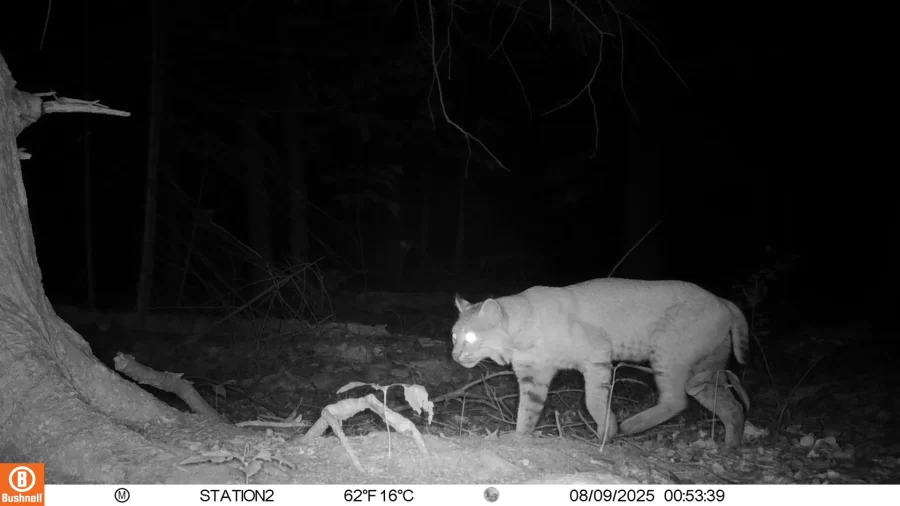
Bobcats captured by wildlife camera. Photo courtesy of Eric LeFlore This material is based upon work supported by the National Science Foundation under Grant No. OIA-2412130 to the University of Maine. Any opinions, findings and conclusions or recommendations expressed in this material are those of the author(s) and do not necessarily reflect the views of the National Science Foundation.
- Yun Garrison receives American Psychological Foundation award
Assistant Professor of Psychology
Dr. Yun Garrison, Assistant Professor of Psychology, has been awarded a grant from the American Psychological Foundation to develop a new psychological measure that explores people’s sense of collective hope in the aftermath of community trauma. This project is part of her ongoing community-engaged scholarship dedicated to fostering healing and growth within the Lewiston-Auburn community. Psychology students from her Community-Based Research Methods and Community-Based Thesis Seminar courses are collaborating with her, gaining hands-on experience in advancing research that bridges psychological science and community resilience. Through this work, she aims to make collective hope more visible, speakable, and actionable as a resource for healing and resilience.
This project was supported by a grant from the American Psychological Foundation
- Jason Castro receives NIH INBRE pilot funding
Associate Professor of Neuroscience
Congratulations to Jason Castro, Associate Professor of Neuroscience on his recent NIH Maine INBRE pilot funding award. The central goal of the project is to use graph neural networks (GNNs), a type of deep learning architecture to understand how molecular features of smells are represented as maps of activity in the brain. In the process, Jason hopes to be able to address a debate in the field of olfaction between two competing hypotheses about how the brain encodes smells – the “ecological” coding hypothesis, which predicts that the brain organizes molecules by their shared behavioral relevance or ecological utility (e.g. ‘predator’, ‘prey’, ‘food’, ‘fermented’ odors), vs. the “physicochemical” coding hypothesis, which predicts that smells are organized by intrinsic chemical properties (functional group, molecular weight, polarity, etc).
This pilot funding supports the migration of Jason’s research toward an exclusive focus on neural computation and provides support for several undergraduates with different levels of computational experience.
Research reported in this publication was supported by an Institutional Development Award (IDeA) Networks of Biomedical Research Excellence (INBRE) from the National Institute of General Medical Sciences of the National Institutes of Health under grant number P20GM103423
- Sandra Goff receives NSF HEGS funding
Associate Professor of Economics
Congratulations to Associate Professor of Economics Sandra Goff, who has received a National Science Foundation award from the Human-Environment and Geographical Sciences Program (HEGS) to support her research on programs that compensate landowners who manage their land for ecological services. Read more…
This material is based upon work supported by the National Science Foundation under Grant No. 2447385. Any opinions, findings and conclusions or recommendations expressed in this material are those of the author(s) and do not necessarily reflect the views of the National Science Foundation.
- Ryan Cole receives NSF EMBRACE grant
Assistant Professor of Physics and Astronomy
Congratulations to Ryan Cole, who has received a grant from the National Science Foundation EMpowering BRoader Academic Capacity and Education (EMBRACE) program. The project, entitled EMBRACE-AGS-Growth: Advancing Temperature-Dependent Absorption Models to Support Next-Generation Remote Sensing, involves the development of a low-temperature spectroscopy facility at Bates to enable sensitive studies of methane spectra in the laboratory. The project will support a collaboration with researchers at UC Boulder who will perform similar experiments in a high-temperature test environments to enable broadband, high accuracy methane reference spectroscopy over temperatures spanning -40 to over 700°C. Funding from the project will support several Bates undergraduate researchers, and through the collaboration with UC Boulder, provide Bates students with technical training on state-of-the-art, NSF-funded laboratory and field-measurement resources.
This material is based upon work supported by the National Science Foundation under Grant No. 2432506. Any opinions, findings and conclusions or recommendations expressed in this material are those of the author(s) and do not necessarily reflect the views of the National Science Foundation.
- Mara Tieken
Associate Professor of Education
Congratulations to Mara Tieken, who, along with collaborators, was recently awarded a grant from the Department of Education’s Institute of Education Sciences to study the field of rural-serving college access organizations and identify qualities and practices that appear to positively influence student outcomes. This is part of a the work of the National Education Research and Development Center for Improving Rural Postsecondary Education.
This material was developed under Grant No. R305C240065 from the U.S. Department of Education. However, those contents do not necessarily represent the policy of the U.S. Department of Education, and you should not assume endorsement by the Federal Government.
- Nathan Lundblad
Professor of Physics
Nathan Lundblad and his collaborator at the Jet Propulsion Laboratory and the University of Illinois, Urbana-Champaign have been awarded a National Aeronautics and Space Administration (NASA) ROSES grant for their project “Quantum dynamics of ultracold bubbles” utilizing the Cold Atom Laboratory on the International Space Station. Read more…
Award No. 80NSSC25K7002, $1,896,573
This material is based upon work supported by the National Aeronautics and Space Administration under Grant No. 80NSSC25K700.
- Ryan Bavis
Helen A. Papaioanou Professor of Biological Sciences
Ryan Bavis and his collaborator at Case Western University have been awarded a National Institutes of Health R01 grant to support their research on Sudden Infant Death Syndrome (SIDS). The cause of SIDS is complex, multifactorial, and remains largely unknown. In this project, Dr. Bavis and his collaborator will use a new animal model of SIDS to investigate central and peripheral neural mechanisms associated with mortality. They will also investigate possible urine and blood biomarkers for SIDS, which may hold potential as predictors of infants at increased risk of SIDS. Congratulations to Ryan on receiving a grant to support this important work!
Award No. RES603473, $307,495
Research reported in this publication was supported by the Eunice Kennedy Shriver National Institute Of Child Health & Human Development of the National Institutes of Health under Award Number R01HD111415. The content is solely the responsibility of the authors and does not necessarily represent the official views of the National Institutes of Health
- Nick Balascio
Associate Professor of Earth and Climate Sciences
Congratulations to incoming associate professor Nick Balascio, who has received a grant from the National Science Foundation‘s Paleo Perspectives on Present and Projected Climate (P4CLIMATE) program. Nick is coming from the College of William and Mary to join the Bates Earth and Climate Sciences department this year. For this project, Nick will work with collaborators at Auburn University and the University of Rhode Island to investigate the connection between changes in climate and wildfires in the northeast U.S during the Holocene period. The data will be compared with current climate changes to develop predictions for future fire potential. Welcome and congratulations, Nick!
Award No. 2402610, $201,625. This material is based upon work supported by the National Science Foundation under Grant No. 2402610. Any opinions, findings and conclusions or recommendations expressed in this material are those of the author(s) and do not necessarily reflect the views of the National Science Foundation.
- Ida Piedmonte
Assistant Professor of Chemistry and Biochemistry
Ida Piedmonte has received a subcontract from the Los Alamos National Laboratories (LANL) to work on a project funded by the Department of Energy. Dr. Piedmonte will develop models for X-ray absorption data collected by her collaborator at LANL. Congratulations, Ida!
Award No. CORE202C4784 $49,910 Any opinions, findings and conclusions or recommendations expressed in this material are those of the author(s) and do not necessarily reflect the views of the Los Alamos National Laboratories or the U.S. Department of Energy.
- Jamie Haverkamp and Sandra Goff
Assistant Professor of Environmental Studies (JH) and Associate Professor of Economics (SG)
Congratulations to Jamie Haverkamp and Sandra Goff, who have received a award from the National Science Foundation (NSF) as part of the University of Maine’s collaborative Maine-FOREST eRISE RII EPSCoR program. collaborative proposal with the University of Maine. This project is part of a major investment by NSF to develop research networks and capacity in states which traditionally receive only a small portion of federal research funding dollars. The project seeks to transform and modernize Maine’s forest economy. Over the next four years, Jamie and Sandra will work closely with their partners at the University of Maine on the Social Resilience arm of the project, contributing to the development of adaptive community resilience and strengthen the capacity of rural communities and the Wabanaki Nations to respond to changes in the socio-ecological environment.
Award No. 2416921, $164,351. This material is based upon work supported by the National Science Foundation under Grant No. 2327892. Any opinions, findings and conclusions or recommendations expressed in this material are those of the author(s) and do not necessarily reflect the views of the National Science Foundation.
View All Grants awarded to Bates faculty organized by Funder
